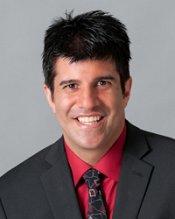“Good colleges” prevent failure to launch
By Daryl CapuanoGeneral Education Advice“It used to be that if you graduated from a decent college with decent grades, you were nearly guaranteed a decent job.” This is a standard line I give when speaking on the changing work world. I can’t recall any of my high school or college friends who faced prolonged unemployment after college graduation. Even in the 1991 recession, most recent college grads were able to get career building jobs. Indeed, in the late 1990s/early 2000s, the choice seemed to be “should I work at a typical big company or take a chance with a start-up?”
Today, even in a highly educated populous like Shoreline, Connecticut, failure to launch is a very real concern. Helping parents throughout Connecticut who have children who either did not transition well to college or are floundering post college has become one of The Learning Consultants’ new mission, so much so we created a subsidiary: Career Counseling Connecticut
Our clients are mostly from socio-economic areas – Guilford, Madison, Old Saybrook, Old Lyme, East Lyme and other coastal Connecticut communities – where post-college employment for children was considered a given.
What happened? In the past, students who did not get their academic footing in high school usually could still get into a pretty good college. Competition for college admission was far easier. One of the least enjoyable parts of my work is telling parents that their child will probably not gain admission to UCONN, which many thought would be a safe school. The other is telling parents that colleges that they did not consider elite in the 1980s (Villanova and Northeastern come to mind) are extremely difficult to get into. While I know there are exceptions, particularly for those in STEM and other technical specialist fields, the reality is that those who attend second tier colleges face brutal competition for full-time jobs.
The mission of our company has always been focused on helping people reach their potential. In the last few years, my “rescue” work has increased. My hope is that our “prevention” work – helping students build skills and do well in high school will minimize the need to rescue anyone.

CEO, The Learning Consultants and Connecticut’s top private education consultant
full bio

